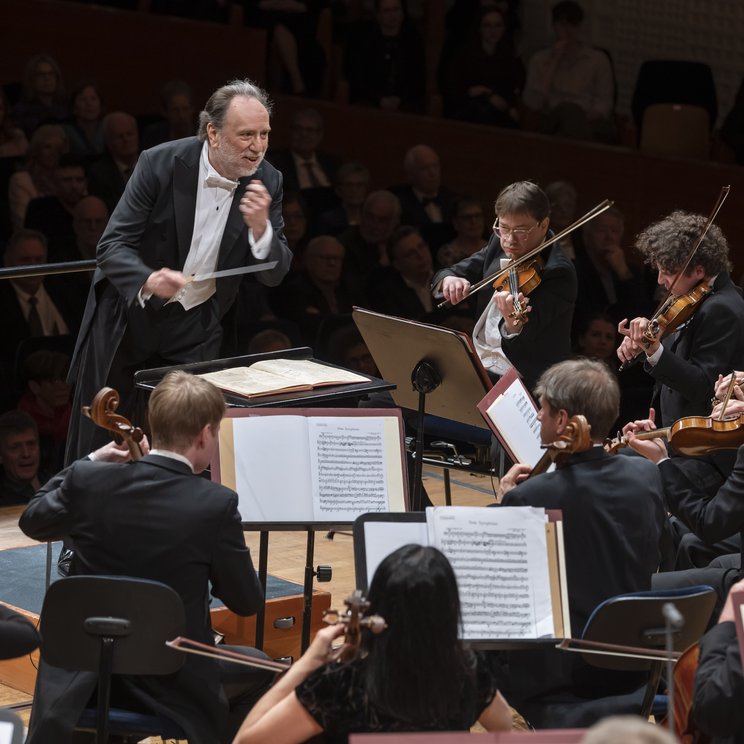Spring Festival 2025
The Lucerne Festival Orchestra’s performances are not limited to the Summer Festival. Since 2022, the orchestra has been attracting classical music fans from all over the world to Lucerne during spring as well. The Spring Festival offers an extended weekend of orchestral and chamber concerts focusing on a specific composer each year; it takes place the week before Easter. The first two seasons, in 2022 and 2023, juxtaposed the five symphonies of Felix Mendelssohn with works by his major contemporaries. Last year, they began undertaking a fresh look at Ludwig van Beethoven.
In 2025, under the direction of Rafal Payare and Franz Welser-Möst – both of whom will be conducting the Lucerne Festival Orchestra for the first time – two of Beethoven’s best-known symphonies will be performed: the legendary Ninth and the Pastoral. In addition, the young Japanese pianist Mao Fujita, already a Festival regular, will be the soloist in Beethoven’s Fourth Piano Concerto. And yet another rising star returns to Lake Lucerne: Alexander Malofeev, who thrilled Festival audiences last summer when he appeared as part of Riccardo Chailly’s Rachmaninoff cycle. This time, he will give a solo recital featuring music by composers from Schubert to Scriabin and exploring the full potential of the piano’s 88 keys – from deeply intimate musings to spectacular outbursts of sound.




